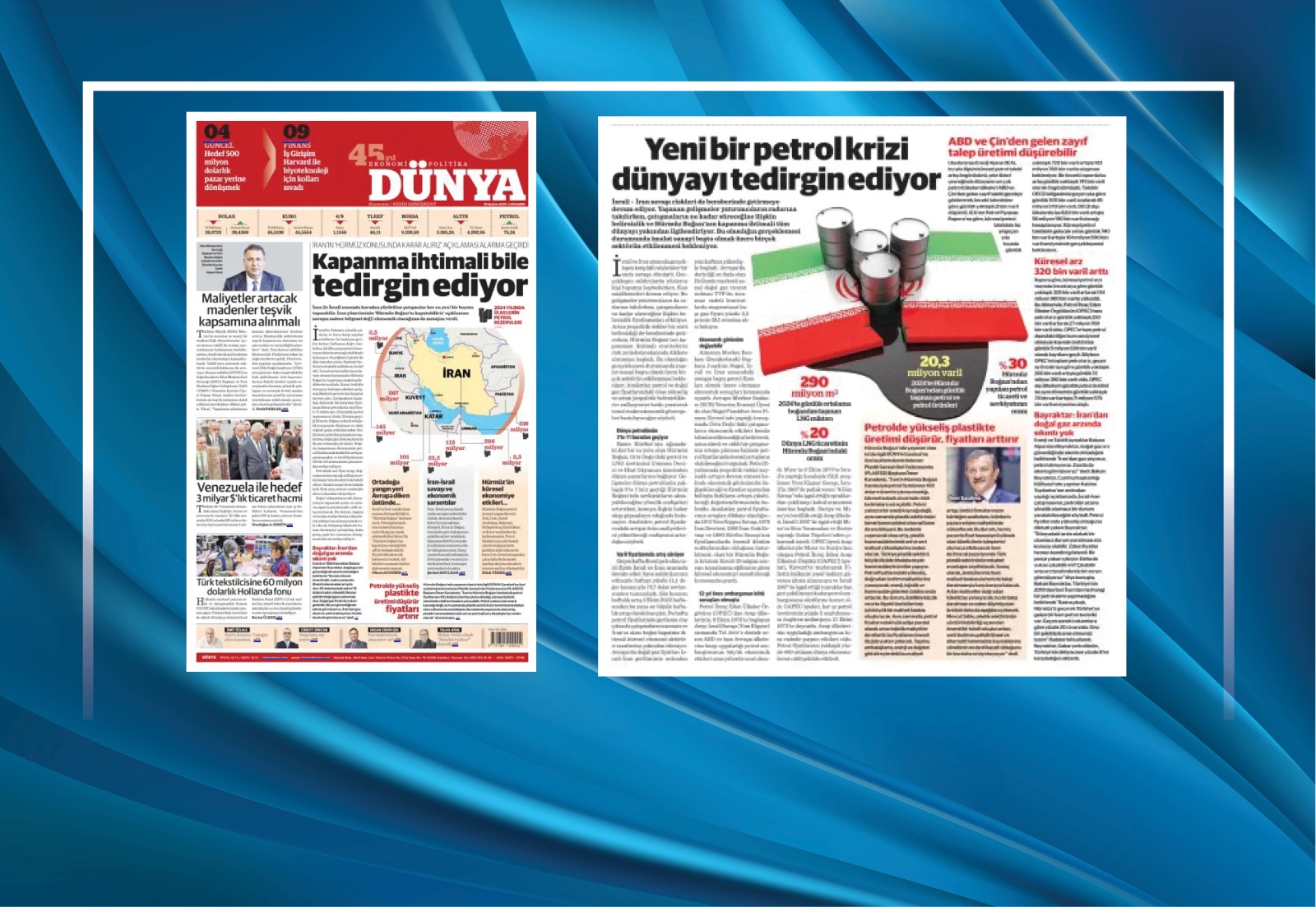
With Iran's move to close the Strait of Hormuz, the possibility of oil prices rising above $100 could lead to serious disruptions in the global supply chain. Ömer Karadeniz, President of PLASFED, stated to Dünya newspaper, “Therefore, any potential increase will cause sudden and sharp cost increases in plastic raw materials. Turkey's plastic sector primarily relies on imported raw materials. The rise in oil prices will directly reflect on production costs; energy, logistics, and raw material expenses will increase significantly. This situation will create a significant cost pressure especially for our small and medium-sized manufacturers.
Logistics costs will rise
At the same time, the rising logistics costs in parallel with the increase in oil prices will significantly raise the prices of final products. The cost increase in processes such as transport, packaging, energy, and distribution will reduce the profitability of our manufacturing companies while also raising the market access costs of products. This will negatively affect the demands of consumers, who have high price sensitivity in the domestic market, and will weaken the competitive advantage of the Turkish plastic sector in export markets. As a result, our manufacturers will face both cost pressure and demand contraction.
Increasing costs will also strain consumers
Rising costs will directly be passed on to consumers, further contracting demand and dragging already declining production down. The current scenario poses a significant threat to the sustainability of the plastic sector while once again highlighting the crucial importance of developing domestic production and turning to alternative raw material sources.
Translated by Artificial Intelligence
